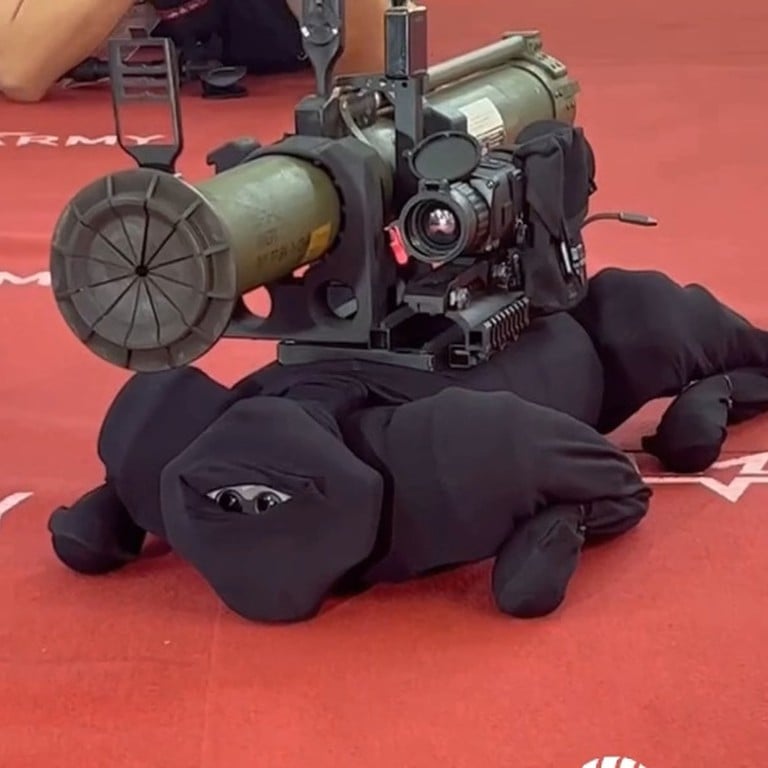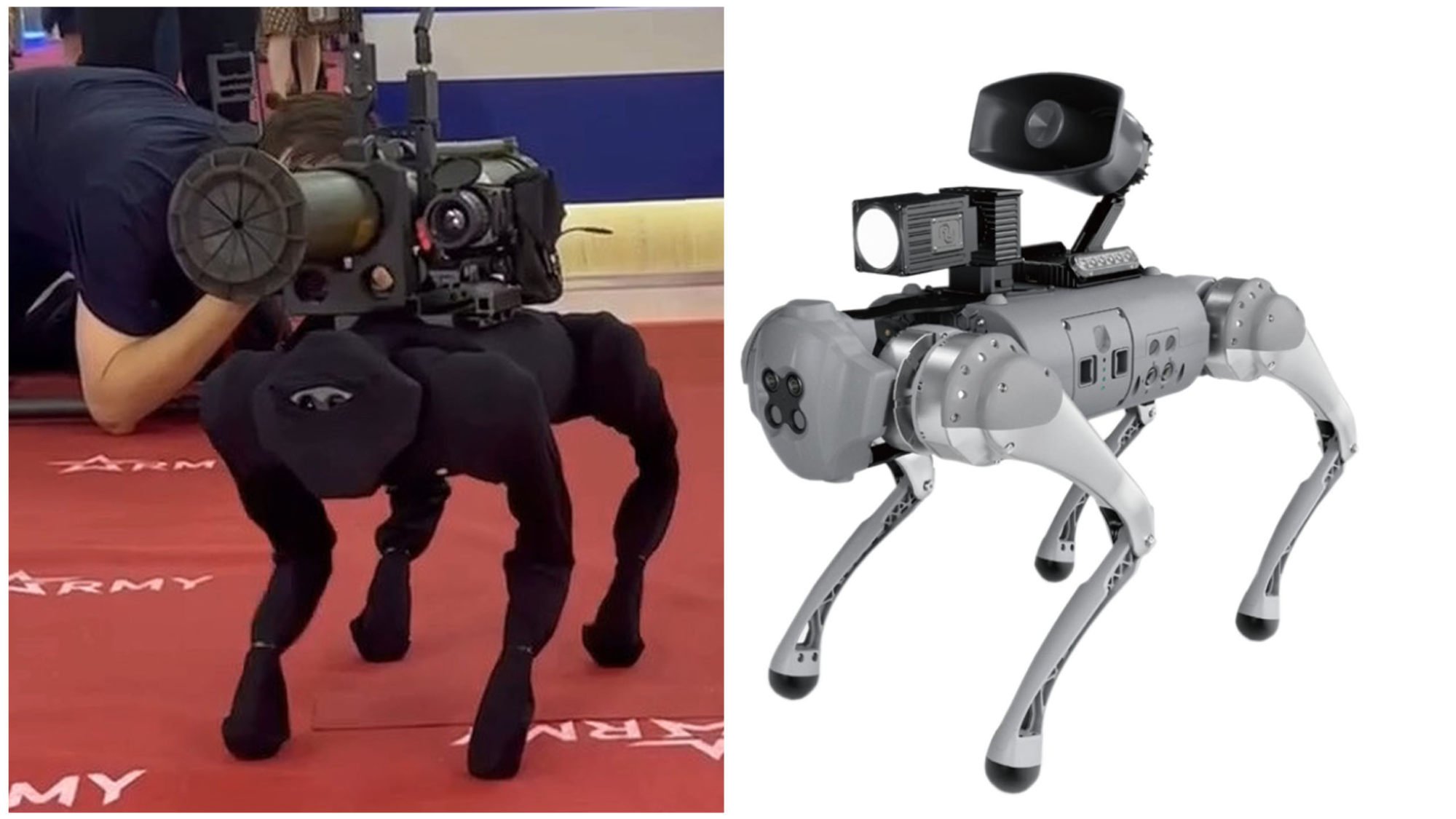
Chinese robotic dog maker Unitree distances itself from Russian report showing a mounted rocket launcher
- In response to a report that appeared to show the Go1 robotic dog with a mounted rocket launcher, Unitree Robotics said its products are only for civilian use
- Unitree is the latest Chinese technology company to be caught up in a controversy related to products being used by Russia’s military, after DJI
The Chinese maker of a robotic dog distanced itself on Tuesday from reports that its product was being used in Russia for military purposes, saying it was not aware of such uses and that the robot is for civilian purposes only.
Chen Li, co-founder of Hangzhou-based Unitree Robotics, told the South China Morning Post that all the company’s products are for civilians. Unitree does not support any military-related applications, he said.
A video report from RIA Novosti circulating online on Monday showed a robotic dog with striking similarities to Unitree’s Go1 carrying a rocket launcher at the Army-2022 convention, a defence trade fair in Moscow sponsored by the Russian Defence Ministry.
The robot is capable of target shooting and transporting weapons, the report said, in addition to delivering medicine in hostile environments.

While the robotic dog shown at the convention was covered in a black suit, social media posts noted the similarities to Unitree’s Go1, which was also reported by PC Magazine, an online publication run by digital media firm Ziff Davis.
Chen said the company is not selling products to Russia’s military and is not aware of its robotic dogs being developed as weapons. He added that if it is the Go1, which retails for US$2,700, the company is not able to track the sourcing.
“It must be someone reselling the product to them,” Chen said.
The Go1 is the latest product from Unitree, a start-up that primarily produces four-legged robots. The robotic dog is promoted as an “intelligent, side-follow robot” that can “go wherever you will go”, according to Unitree’s website. The company is also developing a portable fitness machine called the Unitree Pump.
China’s DJI rebuffs Russian post calling its drones ‘symbol of modern warfare’
The world’s largest drone maker said its products are only “designed for civilian purposes” and that it does not support military applications.
SMIC is already on a US trade blacklist that curtails access to some advanced chip-making tools.
The RIA is not the first to show the Go1 being used as a weapon. Last month, a viral video on Twitter showed a robotic dog identical to Unitree’s product with an attached machine gun firing through the use of a remote control.
In its user guidelines, Unitree said its products must be used “only for proper purposes”, and the company will not bear losses or consequences resulting from a failure to use the product in accordance with the guidelines.

